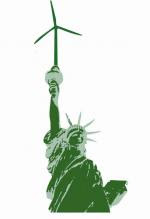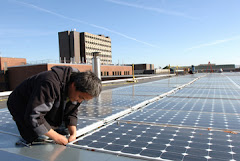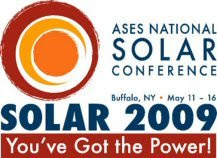 People take action when prices increase. With rising gasoline prices, people react by driving less, using more mass transit, carpooling, biking and moving from over-sized SUV's to smaller, fuel-efficient cars and gas-electric hybrids. In response to public demand to use less gasoline and save money, U.S. automakers are finally taking action to increase the fuel efficiency of their fleet. Suddenly, GM plans to close four SUV and truck plants, increase production of compact and mid-size sedans, and offer an electric hybrid in 2010. Now that's rapid change that will reduce global warming pollution and help stabilize the climate. [click image to enlarge]
People take action when prices increase. With rising gasoline prices, people react by driving less, using more mass transit, carpooling, biking and moving from over-sized SUV's to smaller, fuel-efficient cars and gas-electric hybrids. In response to public demand to use less gasoline and save money, U.S. automakers are finally taking action to increase the fuel efficiency of their fleet. Suddenly, GM plans to close four SUV and truck plants, increase production of compact and mid-size sedans, and offer an electric hybrid in 2010. Now that's rapid change that will reduce global warming pollution and help stabilize the climate. [click image to enlarge]Utility, coal and oil companies will also take action on global warming pollution when they have to pay for it. As long as polluting the air is free, they will continue to spew out global warming pollution and other pollutants that negatively affect the health of people and the planet. Putting a price on polluting the air is the only way to stop it. When the government enacts a sufficiently high price for polluting the air, pollution will go down. Investments will then move toward alternative energy sources that don't pollute the air.
It's time to put a price on carbon emissions that cause global warming and climate change. Scientists recommend emission cuts of 80% by 2050. To achieve this target, companies that profit by polluting our air must pay. New legislation is being proposed that will help compensate consumers for increases in energy costs and facilitate the transition to clean energy sources.













